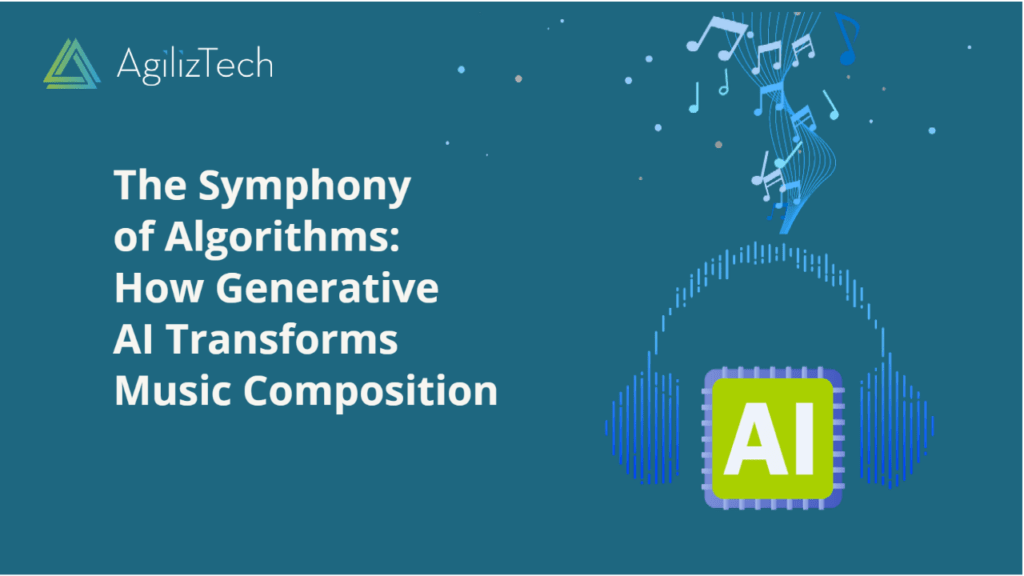Generative AI in Music: The New Composer in Town
Overview
Generative AI in Music?
Music is one of the oldest and most universal forms of human expression. It can evoke emotions, convey messages, and create connections. But what if machines could also create music? What if artificial intelligence (AI) could learn from existing musical data and generate new compositions that sound like human-made music?
This is not a hypothetical question. Generative AI is a branch of AI that focuses on creating new content, such as images, text, or music, based on existing data. Generative AI can use different techniques, such as deep neural networks, to learn the patterns and rules of a given domain and produce novel outputs that follow those patterns and rules.
One of the domains where generative AI is making significant progress is music. Several examples of generative AI systems can compose music in various genres, styles, and moods, such as AIVA, Amper Music, Jukedeck, Magenta, and OpenAI Jukebox. These systems can either generate music from scratch or based on some input parameters, such as a melody, a chord progression, or a genre.
Benefits of Generative AI in Music
Some of the benefits are:
- It can enhance the creativity and productivity of human musicians by providing them with new ideas, inspiration, and feedback.
- It can democratize music creation by allowing anyone to compose music without requiring musical skills or expensive equipment.
- It can expand the diversity and variety of musical content by exploring new combinations and possibilities that humans may need help to think of or be able to achieve.
Challenges of Generative AI in Music
However, it also raises some challenges and questions, such as:
- How can we evaluate the quality and originality of generative music? Is it fair to compare it to human-made music or should it be judged by its standards?
- How can we ensure the ethical and legal use of generative music? Who owns the generated music’s rights and is responsible for its consequences?
- How can we preserve the human element and the cultural value of music? Does generative music diminish the role and identity of human musicians and composers?
Examples of Generative AI in Music
Here are some examples of generative music projects and platforms you can try out. For instance:
- AIVA is an AI composer that can create original music for various purposes, such as films, games, or commercials. You can choose from different genres, moods, and instruments and customize your soundtrack.
- Amper Music is an AI platform that can help you create professional-quality music in minutes. You can select your desired style, mood, length, and tempo, and Amper generates a unique composition.
- Jukedeck is an AI music maker that can produce royalty-free music for your videos, podcasts, or games. You can pick a genre, a mood, an energy level, and a duration, and Jukedeck creates a tailor-made track for you.
- Magenta is an open-source research project by Google that explores the role of machine learning in the creative process. You can use Magenta tools to generate music, drawings, or images or to interact with other artists and musicians.
- OpenAI Jukebox is a neural net that can generate music with coherent lyrics and vocals. You can give it a genre, an artist, or a lyric snippet as input, and it creates a song for you.
Conclusion
Generative AI in music is a rapidly developing field with the potential to revolutionize the way music is created and consumed. While there are still some challenges to be addressed, such as evaluating the quality and originality of generative music and ensuring its ethical and legal use, the potential benefits of generative AI in music are significant.
As it continues to develop, it is likely to have a major impact on the music industry. It could lead to new forms of music, new ways of listening to music, and new ways of interacting with music. It is also possible that generative AI could lead to the creation of new musical genres and subgenres.
The future is still uncertain, but the potential is vast. It is an exciting area of research with the potential to change the way we think about and experience music. The possibilities are endless, and it will be interesting to see how it develops in the years to come.


